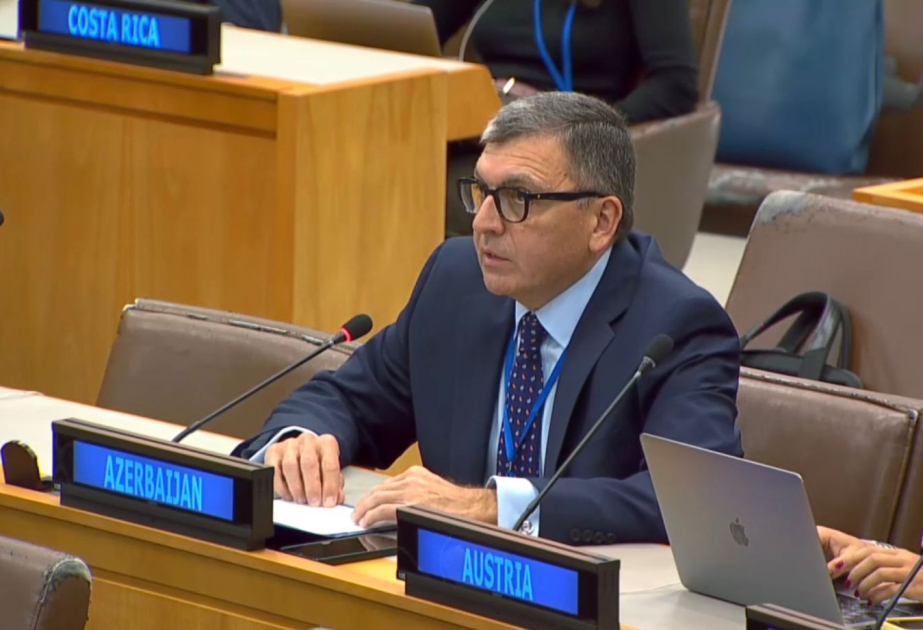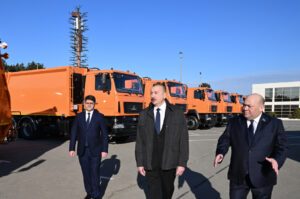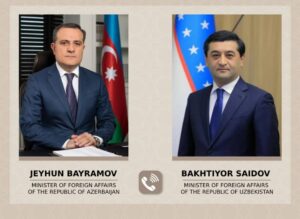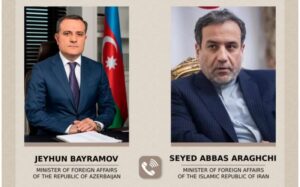Azerbaijan Reaffirms Commitment to Human Rights, Peace, and Reconstruction at UN General Assembly

Washington, The Gulf Observer: Azerbaijan’s Permanent Representative to the United Nations, Tofig Musayev, reaffirmed his country’s firm commitment to protecting human rights, promoting socio-economic development, and advancing post-conflict reconstruction, in his address to the General Debate of the Third Committee of the 80th session of the UN General Assembly.
Musayev underscored that the protection and promotion of human rights and fundamental freedoms remain a top national priority, as enshrined in the Constitution of Azerbaijan. He noted that continuous legal and institutional reforms are being implemented in line with international standards to strengthen these efforts.
Socio-Economic Development and National Priorities
The Azerbaijani envoy highlighted the country’s long-term development agenda under the policy framework “Azerbaijan 2030: National Priorities for Socio-Economic Development”, which was approved by the President of Azerbaijan. The programme outlines key goals including the creation of a competitive economy, the establishment of a dynamic and inclusive society founded on social justice, the development of competitive human capital, the implementation of the Great Return Programme, and the promotion of a clean environment and green growth.
Cultural Diversity and Global Dialogue
Musayev emphasized Azerbaijan’s status as a multiethnic and multicultural society, describing its diversity as a source of national strength. He recalled that Azerbaijan, situated at the crossroads of civilizations, has consistently championed intercultural dialogue on the global stage.
He particularly noted the significance of the “Baku Process”, launched in 2008, and its associated World Forum on Intercultural Dialogue, which serves as an internationally recognized platform for fostering mutual understanding and sharing best practices on intercultural cooperation among diverse global stakeholders.
Peacebuilding and Post-Conflict Reconstruction
Referring to Azerbaijan’s post-conflict peace efforts, Musayev stated that following the liberation of its territories from nearly thirty years of occupation, Azerbaijan initiated a normalization process with Armenia based on five principles rooted in international law.
He noted that this process culminated in the initialing of the “Agreement on the Establishment of Peace and Interstate Relations” between the foreign ministers of Azerbaijan and Armenia on August 8 this year—an important step toward durable peace in the South Caucasus.
The Azerbaijani diplomat also outlined large-scale rehabilitation and reconstruction efforts launched over the past five years in the liberated territories, aimed at rebuilding cities, towns, and villages to enable the safe and dignified return of hundreds of thousands of forcibly displaced persons.
“More than 50,000 people have already returned to their homes,” Musayev said, noting that these efforts are severely hindered by landmine contamination and other explosive remnants of war.
He revealed that since November 2020, 409 post-conflict mine victims have been recorded in Azerbaijan—71 fatalities and 338 injuries, the majority being civilians.
Humanitarian Challenges and Missing Persons
Musayev highlighted another urgent humanitarian concern—the fate of 3,990 Azerbaijani citizens missing since the early 1990s conflict, including 779 civilians, among them 284 women, 316 elderly individuals, and 71 children.
He pointed out that in some instances, entire families disappeared, and some missing persons vanished even after being visited in custody by the International Committee of the Red Cross.
Since the end of the conflict, 187 sets of human remains have been recovered from 28 mass graves and burial sites in the liberated territories, with most identified and returned to families. These discoveries, Musayev noted, reveal deliberate killings of civilians and protected persons under international humanitarian law.
“Azerbaijan has taken decisive steps to investigate and prosecute numerous atrocity crimes committed during the conflict,” he emphasized.
Call for International Support
Concluding his address, Musayev stressed that the scale of the landmine threat in Azerbaijan demands enhanced accountability, stronger international solidarity, and adequate assistance to bolster national humanitarian demining capacity.
He reaffirmed Azerbaijan’s determination to continue its peacebuilding, humanitarian, and reconstruction efforts in partnership with the international community, underscoring the country’s commitment to building a peaceful, just, and prosperous future for all its citizens.


